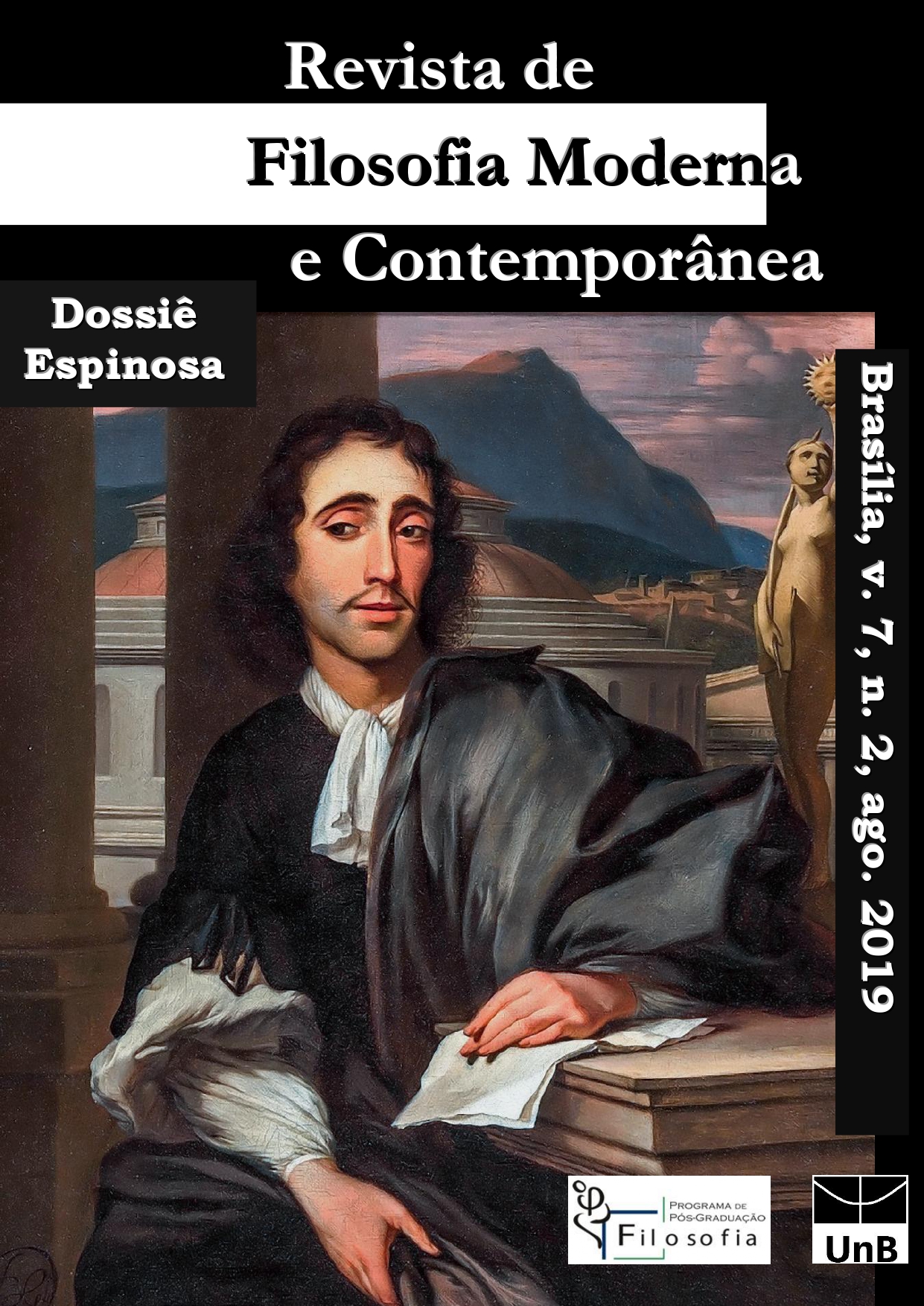Security, Freedom, and Concordia in Spinoza's Republican Thought
DOI:
https://doi.org/10.26512/rfmc.v7i2.25781Keywords:
Spinoza, Humanism, Politics, Security, FreedomAbstract
This paper intends to present the construction of the concepts of security and freedom in the Spinoza’s political writings, rethinking its construction in dialogue with the humanist tradition, most specifically with Thomas More and Erasmus of Rotterdam. This dialogue is related to the humanist problem of pietas, in the moral aspect, and concordia, in the political aspect, to be reconsidered and articulated with the political realism introduced by Machiavel and Hobbes. Finally, we aim to analyze the peculiarity of the Dutch philosopher, problematizing such concepts in the Theological-political Treatise and the Political Treatise.
References
BIETENHOLZ, P.G. Encounters with a Radical Erasmus: Erasmus' Work as a Source of Radical Thought in Early Modern Europe, Toronto: Toronto University Press, 2009
BOVE, L. La stratégie du conatus. Affirmation et résistance chez Spinoza. Paris: Vrin, 1996.
CHAUI, M. “Segurança e liberdade: Espinosa e a construção da paz” in Discurso, 35, 2005.
ESPINOSA, B. Tratado Teológico-político. Tradução, introdução e notas de Diogo Pires Aurélio. Lisboa: Imprensa Nacional-Casa da Moeda, 2004.
ESPINOSA, B. Tratado Político. Tradução, introdução e notas de Diogo Pires Aurélio, revisão de Homero Santiago. São Paulo: WMF Martins Fontes, 2009.
FIX, A.C. Prophecy and Reason. The Dutch Collegiants in the Early Enlightenment, Princeton: Princeton University Press, 1990.
HAITSMA MULIER, E.O.G. “A Controversial Republican: Dutch Views on Machiavelli in the Seventeenth and Eighteenth Centuries” in BOCK, G., SKINNER, Q., VIROLI. M. (orgs.); Machiavelli and Republicanism. Cambridge: Cambridge University Press, 1990.
ISRAËL, N. “La question de la sécurité dans le Traité politique” in JAQUET, C. SÉVÉRAC, P., SUHAMY, A. (eds.). La multitude libre. Nouvelles lectures du Traité politique. Paris: Éditions Amsterdam, 2008.
JAMES, S. “Narrative as the means to freedom: Spinoza on the uses of imagination” in MELAMED, Y.Y., ROSENTHAL, M.A. (orgs.). Spinoza's Theological-Political Treatise. A Critical Guide. Cambridge: Cambridge University Press, 2010.
NADLER, S. Spinoza. A Life, Cambridge: Cambridge University Press, 1999.
SKEAFF, C. Becoming Political. Spinoza's Vital Republicanism and the Democratic Power of Judgment, Chicago: Chicago University Press, 2018.
TATIÁN, D. “Spinoza, un realismo anómalo de la paz” in Araucaria. Revista Iberoamericana de Filosofía, Política y Humanidades,16/32, 2014.
ZOURABICHVILI, F. L'énigme de la “multitude libre” in JAQUET, C., SÉVÉRAC, P., SUHAMY, A. (orgs), La multitude libre. Nouvelles lectures du Traité politique, Paris: Éditions Amsterdam, 2008.
Downloads
Published
Issue
Section
License
Copyright for articles published in this journal is retained by the authors, with first publication rights granted to the journal. By virtue of their appearance in this open access journal, articles are free to use, with proper attribution, in educational and other non-commercial settings.


